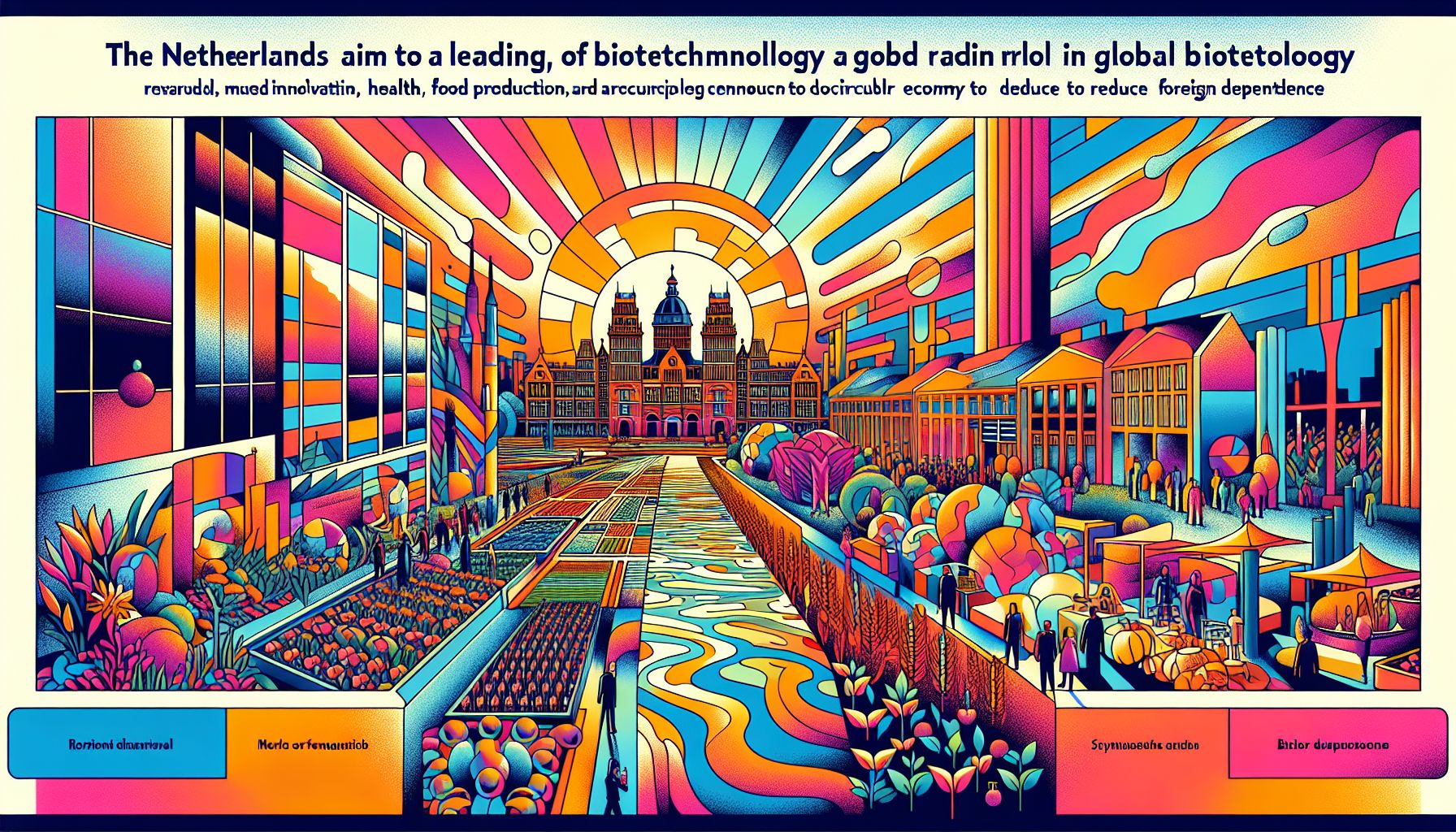Netherlands Aims for Leading Role in Global Biotechnology by 2040

The Hague, Friday, 11 April 2025.
To achieve global leadership in biotechnology by 2040, the Dutch government focuses on rapid innovation in health, food production, and circular economy to reduce foreign dependence.
Strategic Investment in Biotechnology Innovation
The Dutch government is making substantial financial commitments to achieve its biotechnology leadership goals. Through projects in the National Growth Fund (NGF), the cabinet is investing nearly €1.3 billion in biotechnology initiatives over the coming years [1]. This investment strategy aligns with broader European efforts, as demonstrated by the Circular Bio-based Europe Joint Undertaking (CBE JU), which recently launched a €172 million call for project proposals on April 3, 2025 [2].
Emerging Success in Sustainable Materials
Dutch innovation is already showing promising results in sustainable biotechnology applications. Grown Bio, a Hilversum-based company, exemplifies this progress through their development of 100% compostable mycelium packaging, offering a viable alternative to plastic foam [3]. The company’s innovation demonstrates how biotechnology can address both environmental concerns and practical industrial needs, with their packaging showing comparable performance to traditional materials while being fully biodegradable [3].
Healthcare and Medical Advances
The biotechnology initiative extends into healthcare innovations, with significant breakthroughs already emerging. Recent developments in medical biotechnology show promising results, as evidenced by advanced clinical trials showing improved treatment outcomes. For instance, biotechnology applications in medical research have demonstrated substantial progress, with recent trials showing approximately 33% reduction in disease progression for certain conditions [4].
Regulatory Framework and Future Outlook
To accelerate market introduction of innovations, the Dutch government is actively working to streamline regulations while maintaining safety standards. The cabinet is exploring the implementation of regulatory sandboxes (regelluwe proeftuinen) at both national and European levels [1]. This approach aligns with the EU Biotech Act and the Biotechnology and Biomanufacturing Hub initiatives, aiming to enhance the competitive position of EU countries in the global biotechnology landscape [1].

